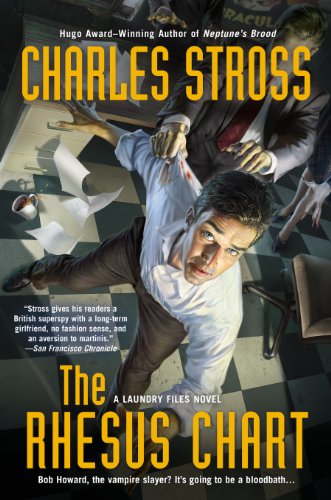The Atrocity Archives by Charles Stross
The Atrocity Archives contains the first two novellas in Charles Stross’ THE LAUNDRY FILES: The Atrocity Archive and The Concrete Jungle. The series is based on the premise that, before he died, Alan Turing solved a theorem that proved that mathematics could be used to gain access to other space-time dimensions. Unfortunately, what’s out there is exactly what H.P. Lovecraft said there was — sleeping tentacled horrors that might be inclined to enter our universe if gateways were opened.
Read More

 (1964- )
(1964- )


























Do it! One of the best things I've read in recent years.
This reminds me. I want to read Addie LaRue.
We’re in total agreement David!
I felt just the same. The prose and character work was excellent. The larger story was unsatisfying, especially compared to…
Hmmm. I think I'll pass.